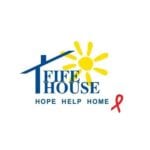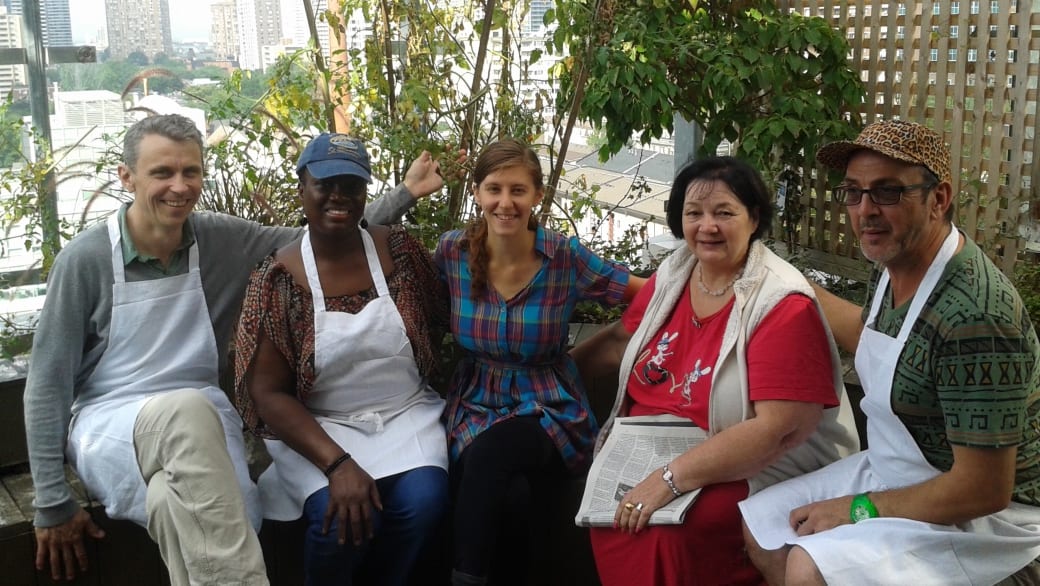This story was created by Xtra's branded content team alongside Fife House, separate from Xtra's editorial staff.
Last year, over 230 active volunteers contributed 13,871 hours to Fife House. That’s about the equivalent of eight full-time employees in volunteer hours donated to Canada’s largest housing service for people living with HIV / AIDS (PLHA). Of these volunteers, 44 were part of Fife House’s peer volunteering program, a program specially designed to engage PLHAs.
The peer volunteer program was created in part as a way to give PLHAs more influence in decision making and the services Fife House provides. Andre Ceranto, program coordinator of volunteers and peer engagement, notes that peer volunteers have had a great impact and that the response from clients has been positive. “Many times we’ve heard that having a PLHA walk them through the process and share their own experience with HIV is usually very comforting for clients, knowing that they met someone that’s been through this before and it worked out for them.” Ceranto says.
The effectiveness of peer volunteers led to the creation of some volunteer positions that are specifically for PLHAs. Fife House’s Homeless Outreach Program now relies exclusively on peer volunteers during drop-in hours. “Most of the peers that are there have been through homelessness themselves, so they have experience with filling out forms, being out in the streets, they have experience being housed,” Ceranto explains. “When someone comes to talk to them, they can provide the support they need, with the added component of being able to connect to the client by providing personal experience.”
Fife House has had 96 peer volunteers come through the program since it started in 2010. The program has been so successful that Ceranto notes there are now peer volunteers in virtually every part of the organization where volunteer positions exist.
As with all new initiatives, the program has also created challenges for Fife House. Most of the peer volunteers are current or former clients that are looking to give back, and for that to happen Fife House needs to make sure they are well trained and supported for their volunteer position. “Usually for general volunteers we look for people who have the skills and experience specific to the position we’re looking to fill,” Ceranto explains. “However with our PLHAs what happens is the opposite. We meet the PLHA wherever they are in their life and we try to build their capacity, skills and knowledge to be able to take on certain volunteer positions.”
In order to accommodate this, Fife House created an intensive two-day training program for peer volunteers. The training covers a range of topics in order to help peers make the transition from service-user to service-provider. Confidentiality, self-care, self-disclosure, dealing with triggers and general administrative information are some of the main training components.
The training program, and Fife House’s ability to navigate its challenges successfully, has garnered the attention of others. Ceranto notes that other AIDS service organizations are now looking to Fife House when building their own peer programs. “There’s always been skepticism from the community about what kind of involvement is given to PLHAs in terms of opportunities to contribute,” he explains. “We create this opportunity for PLHAs volunteering with us to make them feel they are valued, part of a community. They feel listened to and we provide opportunities for them to bring their voice and opinions. I think that’s one of the things that other organizations are seeing, especially other organizations where they’re trying to encourage more PLHA participation.”
The program creates a situation where everyone wins. Fife House is getting a larger pool of skilled volunteers to draw from, and the volunteers receive useful training and development. It isn’t uncommon for peers to end up leaving the program to pursue other opportunities, but Ceranto notes that losing these volunteers isn’t necessarily bad.
“It’s amazing to see the progress of some of our volunteers who first got involved with Fife House as a client, so coming from homelessness, and spent some time with us putting their life back in order,” he says. “Seeing people out of the workforce for maybe many decades who now see they have a chance and decide to go back to school and wanting to pursue again a paid position or profession. We’ve seen this quite a lot through the peers that have passed through this project. They’re getting their life back. Every time we lose a volunteer to school or to a job, I feel like my mission is accomplished.”
Fife House
490 Sherbourne St, second floor, Toronto
fifehouse.org


 Why you can trust Xtra
Why you can trust Xtra